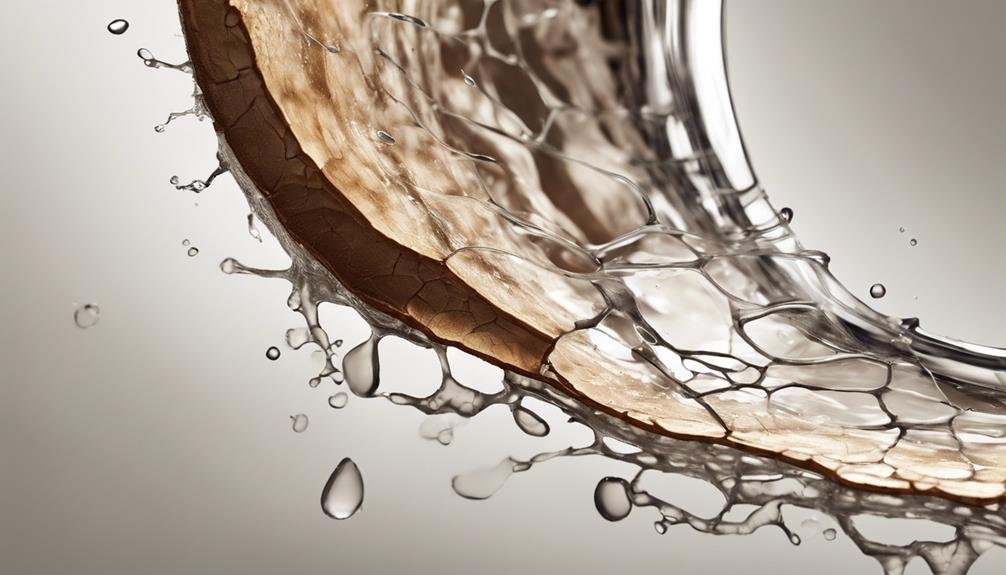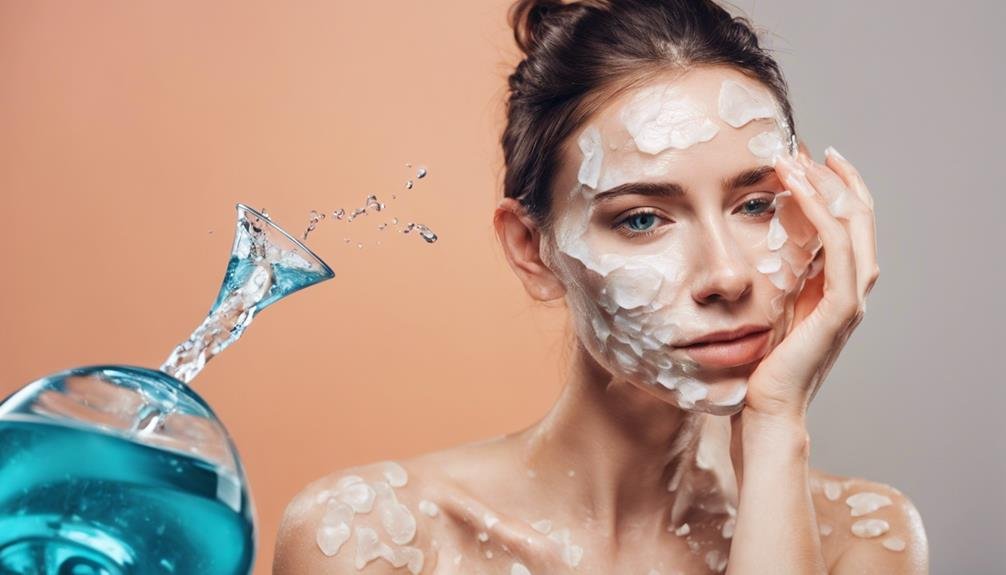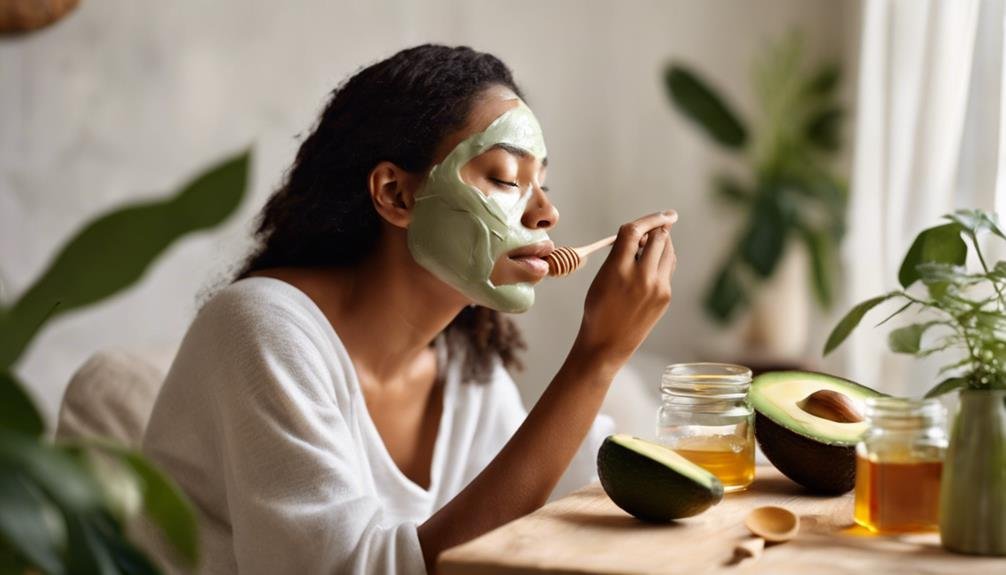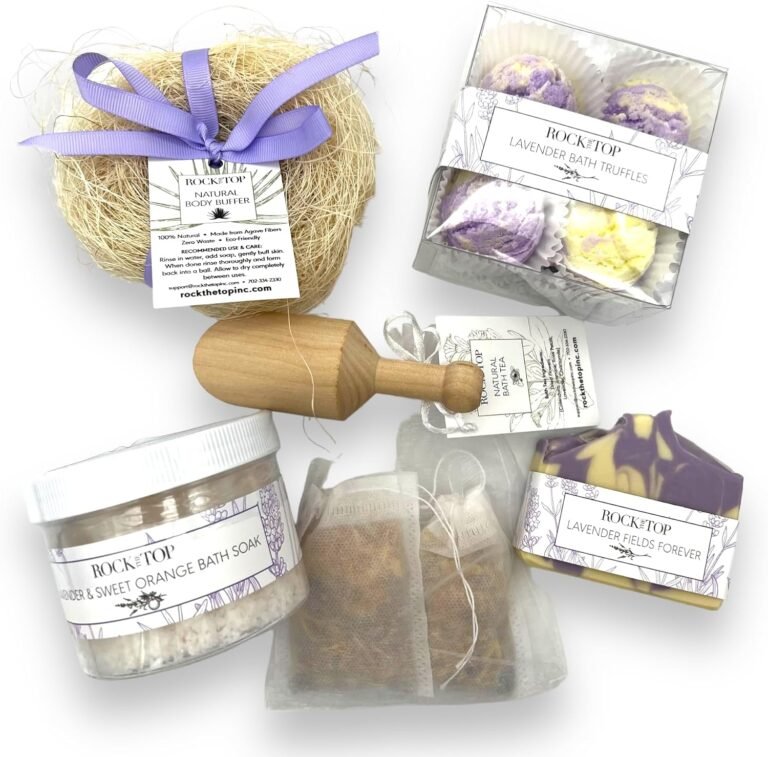How to Combat Skin Dehydration
To combat skin dehydration effectively, start by recognizing the warning signs and identifying potential triggers that may be stripping your skin of its natural moisture. Developing a hydrating skincare routine tailored to your skin's needs is key, but it doesn't end there. Understanding how internal factors like hydration levels and external factors like environmental aggressors play a role in skin dehydration will give you a more holistic approach to achieving that coveted supple glow. Stay tuned to uncover practical tips and expert insights on rejuvenating your skin from within.
Key Takeaways
- Hydrate from within by drinking enough water daily.
- Use gentle, hydrating skincare products to maintain moisture balance.
- Incorporate a hydrating serum with hyaluronic acid.
- Moisturize damp skin with emollient-rich products.
- Consider a humidifier to add moisture to the air for skin hydration.
Understanding Skin Dehydration

If you have ever experienced tightness, roughness, or flakiness on your skin, it might be a sign of dehydration. Dehydration occurs when your skin lacks water, leading to a compromised skin barrier. Factors such as weather conditions, harsh skincare products, and not drinking enough water can contribute to skin dehydration.
When your skin is dehydrated, it may feel tight, look dull, and be more prone to fine lines and wrinkles. Additionally, dehydrated skin can appear rough and flaky, making it challenging to apply makeup smoothly. It's essential to differentiate between dry skin and dehydrated skin, as they require different treatments. While dry skin lacks oil, dehydrated skin lacks water.
To combat skin dehydration, focus on using hydrating products that contain ingredients like hyaluronic acid, glycerin, and ceramides. Additionally, incorporating a humidifier into your living space can help add moisture to the air, benefiting your skin. Remember to drink an adequate amount of water daily to support your skin's hydration from within.
Hydrating Skincare Routine Essentials
To establish a nourishing skincare routine that effectively combats skin dehydration, incorporating essential hydrating products is paramount.
Begin with a gentle cleanser suitable for your skin type to remove impurities without stripping away moisture.
Follow up with a hydrating toner to balance your skin's pH levels and prep it for better product absorption.
Including a serum containing hyaluronic acid can deeply hydrate your skin and lock in moisture.
Opt for a moisturizer rich in emollients and humectants to provide long-lasting hydration and protect your skin's barrier.
Don't forget your eyes – a hydrating eye cream can help combat dryness and fine lines in the delicate eye area.
Lastly, finish off your routine with a broad-spectrum sunscreen to shield your skin from harmful UV rays that can further dehydrate it.
Importance of Drinking Water

Ensuring an adequate intake of water is crucial for maintaining optimal skin hydration levels. Water is the essence of life, and your skin craves it just as much as the rest of your body.
When you don't drink enough water, your skin can become dehydrated, leading to dryness, tightness, and even exacerbating fine lines and wrinkles. By drinking an ample amount of water daily, you help your skin stay hydrated from the inside out.
Water aids in flushing out toxins, carrying essential nutrients to skin cells, and maintaining the skin's elasticity.
Avoiding Dehydrating Factors
Maintaining skin hydration goes beyond just drinking water; it involves being mindful of factors that can dehydrate your skin.
One crucial aspect to consider is excessive sun exposure. UV rays can strip your skin of its natural oils, leading to dryness and dehydration. To combat this, always use a broad-spectrum sunscreen with at least SPF 30 before heading outdoors.
Additionally, hot showers and baths may feel relaxing, but they can actually worsen skin dehydration by stripping away the skin's protective oils. Opt for lukewarm water instead and limit your shower time to prevent excessive drying.
Another factor to watch out for is harsh skincare products containing alcohol or fragrances. These ingredients can be too harsh for your skin, leading to irritation and moisture loss. Choose gentle, hydrating products that are suitable for your skin type to maintain its moisture balance.
Moisturizing Tips for Hydration
For effective skin hydration, incorporating proper moisturizing techniques is essential. To keep your skin hydrated and healthy, follow these moisturizing tips.
Firstly, choose a moisturizer that matches your skin type. If you have oily skin, opt for a lightweight, oil-free moisturizer. For dry skin, a richer, creamier moisturizer can provide the hydration your skin needs. Apply your moisturizer immediately after cleansing while your skin is still slightly damp to lock in moisture.
Don't forget to moisturize your entire body, not just your face, to prevent dehydration. Additionally, consider using a humidifier in your room to add moisture to the air, especially during dry weather. Remember to drink plenty of water throughout the day to hydrate your skin from within.
Lastly, avoid long, hot showers as they can strip your skin of its natural oils, contributing to dehydration. By following these moisturizing tips, you can maintain well-hydrated and healthy skin.
Hyaluronic Acid Benefits
To further enhance your skin hydration regimen, exploring the benefits of hyaluronic acid can be a game-changer. Hyaluronic acid is a powerhouse ingredient known for its ability to attract and hold onto moisture in the skin, making it a top choice for combating dehydration. Here are some key benefits of incorporating hyaluronic acid into your skincare routine:
| Benefit | Description |
|---|---|
| Intense Hydration | Hyaluronic acid can hold up to 1000 times its weight in water, providing deep hydration for the skin. |
| Plumping Effect | By retaining moisture, hyaluronic acid helps to plump up the skin, reducing the appearance of fine lines and wrinkles. |
| Improved Elasticity | The hydration boost from hyaluronic acid can enhance skin elasticity, giving you a firmer and more youthful complexion. |
| Non-Comedogenic | Hyaluronic acid is lightweight and non-greasy, making it suitable for all skin types, even oily or acne-prone skin. |
Incorporating hyaluronic acid into your skincare routine can help you achieve a well-hydrated, plump, and youthful complexion.
Choosing Hydrating Ingredients

When selecting hydrating ingredients for your skincare routine, it's crucial to opt for compounds that can effectively replenish and retain moisture in your skin. Look for ingredients like hyaluronic acid, glycerin, and ceramides.
Hyaluronic acid is a powerhouse ingredient known for its ability to attract and hold onto water, making it a great choice for boosting skin hydration. Glycerin is a humectant that draws moisture into the skin, keeping it soft and supple. Ceramides help strengthen the skin's barrier, preventing water loss and locking in hydration.
Another excellent hydrating ingredient to consider is niacinamide, which not only helps to improve the skin's moisture levels but also enhances its barrier function. For those with sensitive skin, ingredients like aloe vera and colloidal oatmeal can provide soothing hydration without irritation.
When choosing products, opt for those with a high concentration of these hydrating ingredients to ensure maximum effectiveness in combating skin dehydration.
Nighttime Hydration Strategies
Optimizing your nighttime skincare routine is essential for maintaining skin hydration levels while you rest. Here are some effective strategies to keep your skin hydrated and healthy throughout the night:
- Use a Hydrating Night Cream: Incorporate a rich, nourishing night cream into your routine to provide intense hydration while you sleep.
- Apply a Hyaluronic Acid Serum: Hyaluronic acid attracts moisture to the skin, helping to keep it hydrated and plump overnight.
- Invest in a Humidifier: Using a humidifier in your bedroom can help combat dry indoor air, preventing moisture loss from your skin.
- Drink Water Before Bed: Staying hydrated from the inside out is key. Sip water before bed to help maintain your skin's natural moisture levels.
- Avoid Hot Showers Before Bed: Hot water can strip the skin of its natural oils, leading to dehydration. Opt for lukewarm showers to help preserve your skin's hydration levels.
DIY Hydrating Face Masks

Enhance your nighttime hydration routine with DIY Hydrating Face Masks. These masks are a luxurious and effective way to replenish moisture, leaving your skin soft, supple, and glowing.
To create a hydrating face mask at home, you can use simple ingredients like honey, yogurt, avocado, or aloe vera. Honey is a natural humectant that locks in moisture, while yogurt soothes and hydrates the skin. Avocado is rich in healthy fats that nourish and hydrate, and aloe vera helps to calm and hydrate dry, irritated skin.
To make a DIY hydrating face mask, mix your chosen ingredients together to form a smooth paste. Apply the mask to your face, sit back, and relax for about 15-20 minutes before rinsing it off with lukewarm water. Incorporating these masks into your skincare routine a few times a week can significantly boost your skin's hydration levels, giving you a radiant complexion.
Treat yourself to a spa-like experience at home with these simple yet effective DIY hydrating face masks.
Humidifier for Skin Hydration
To effectively combat skin dehydration, incorporating a humidifier into your skincare routine can be a game-changer. Humidifiers help replenish moisture in the air, which can benefit your skin in numerous ways. Here are some key reasons why a humidifier is essential for skin hydration:
- Boost Hydration Levels: By adding moisture to the air, humidifiers help prevent your skin from drying out.
- Enhance Skin Elasticity: Proper hydration from a humidifier can improve your skin's elasticity and overall appearance.
- Combat Dryness: Humidifiers are effective in combating dry skin, particularly during colder months or in arid climates.
- Soothe Irritated Skin: If you have sensitive or irritated skin, a humidifier can provide relief by maintaining optimal moisture levels.
- Promote Skin Health: Consistent use of a humidifier can promote healthier skin by keeping it adequately hydrated.
Incorporating a humidifier into your skincare routine can significantly improve your skin's hydration levels, leading to a healthier and more radiant complexion.
Sun Protection for Hydrated Skin

To maintain your skin's hydration levels, ensuring it remains healthy and supple, the next step is to focus on safeguarding it from the harmful effects of the sun. Sun protection is crucial in maintaining hydrated skin and preventing premature aging and damage. Here are some essential tips to shield your skin from the sun's harmful rays:
| Sun Protection Tips | Description |
|---|---|
| 1. Wear Sunscreen | Apply a broad-spectrum sunscreen with at least SPF 30 daily. |
| 2. Seek Shade | Limit direct sun exposure, especially during peak hours. |
| 3. Wear Protective Clothing | Opt for clothing that covers your skin, like long sleeves and hats. |
| 4. Use Sunglasses | Protect your delicate eye area with UV-blocking sunglasses. |
Professional Treatment Options
For those seeking professional solutions to combat skin dehydration, considering specialized treatment options can yield significant benefits. Professional treatments offer targeted solutions to replenish moisture and rejuvenate your skin. Here are some effective options to help combat skin dehydration:
- Hydrating Facials: Professional facials can provide deep hydration, improving skin texture and appearance.
- Chemical Peels: Peels can exfoliate dead skin cells, allowing better absorption of hydrating products.
- Microdermabrasion: This treatment removes dead skin cells, promoting the growth of new, hydrated skin.
- Laser Therapy: Laser treatments can stimulate collagen production, enhancing skin hydration.
- Microneedling: This procedure creates tiny punctures in the skin, triggering the body's natural healing process and boosting hydration levels.
Consulting with a skincare professional can help determine the best treatment option based on your skin type and hydration needs. Remember, professional treatments can provide the extra hydration boost your skin craves.
Frequently Asked Questions
Can Certain Medications Contribute to Skin Dehydration?
Certain medications can indeed contribute to skin dehydration. It's important to be aware of this potential side effect and take steps to counteract it. Staying hydrated, using moisturizers, and consulting with your healthcare provider are key.
How Does Stress Impact Skin Hydration Levels?
Stress can disrupt your skin's moisture balance by increasing cortisol levels, which affects hydration. This can lead to compromised skin barrier function and dehydration. Managing stress through self-care practices can help maintain optimal skin hydration levels.
Is There a Link Between Diet and Skin Dehydration?
Eating a balanced diet rich in hydrating foods like fruits and vegetables can help combat skin dehydration. Drinking plenty of water also plays a crucial role in maintaining skin moisture levels, contributing to a healthy and glowing complexion.
Can Over-Exfoliation Lead to Skin Dehydration?
Yes, over-exfoliation can lead to skin dehydration. When you exfoliate excessively, you strip away the skin's natural oils, causing moisture loss. It's important to exfoliate gently and follow up with hydration to maintain skin health.
What Role Does Climate Play in Skin Hydration?
Climate directly impacts skin hydration. Dry environments can strip moisture from your skin, leading to dehydration. In humid areas, moisture can be locked in, aiding hydration. Be mindful of your surroundings to help keep your skin balanced and healthy.
Conclusion
Now that you have the tools to combat skin dehydration, your skin will be as hydrated as a lush oasis in the desert. Remember to nourish your skin with a hydrating skincare routine, drink plenty of water, and shield it from harmful factors. Embrace the glow of healthy, hydrated skin and watch as it radiates with vitality and resilience. Your skin will thank you for the love and care you provide.








